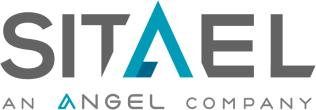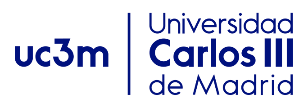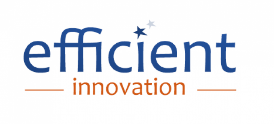You will find below the detailed presentation of the 6 actors proposing the EDDA project:
Thales Alenia Space, a joint venture (JV) between Thales (67%) and Leonardo (33%), is a key European player in space telecommunications, navigation, Earth observation, exploration and orbital infrastructures. Thales Alenia Space and Telespazio form the two parent companies’ “Space Alliance”, which offers a complete range of services and solutions. The company is deeply involved in designing and building satellite systems for communications, constellation, environmental and climate change monitoring, defence, science and exploration, space infrastructure and transportation. The project includes Thales Alenia Space France, Belgium
 Thales Alenia Space in France is located in Cannes and Toulouse. The Cannes site, where the coordination team of EDDA is located, has 90 years of existence. It represents 4000 employees over 2 sites (Cannes and Toulouse). The company did work on H2020 project: HV-EPSA, High Voltage Electrical Power System Architecture, as coordinator, CHEOPS Consortium for Hall Effect Orbital Propulsion System, I3DS (Integrated 3D Sensors) and EROSS (European Robotic Orbital Support Services) for In-orbit service mission. Thales Alenia Space France also worked for ESA project: ARTES study, towards the 100kW communications satellites and CNES project: Primary power supply for high power satellite with electric propulsion, HEMPT-NG.
Thales Alenia Space in France is located in Cannes and Toulouse. The Cannes site, where the coordination team of EDDA is located, has 90 years of existence. It represents 4000 employees over 2 sites (Cannes and Toulouse). The company did work on H2020 project: HV-EPSA, High Voltage Electrical Power System Architecture, as coordinator, CHEOPS Consortium for Hall Effect Orbital Propulsion System, I3DS (Integrated 3D Sensors) and EROSS (European Robotic Orbital Support Services) for In-orbit service mission. Thales Alenia Space France also worked for ESA project: ARTES study, towards the 100kW communications satellites and CNES project: Primary power supply for high power satellite with electric propulsion, HEMPT-NG.
In addition of being coordinator of the project Thales Alenia Space France will also perform system study and uses cases definition, High Voltage Solar Array Simulator specification and procurement, will participate to the test and set the roadmap. Thales Alenia Space France clearly see the full potential of direct-drive for electric propulsion and aims to increase its TRL.
Thales Alenia Space in Belgium is the Belgian front-runner in space electronics applications for satellites and launchers, a world leader in power conditioning and distribution for satellites, a key supplier of electronics for European launchers and is the first automated manufactory of photovoltaic assemblies (PVA) in the Europe. The company has its source as electronic division for the former Belgian company ACEC. This division was acquired by Alcatel in 1989 and then merged in 1996 with ETCA, created in 1963. Following the merger of Alcatel and Finmeccanica’s space activities in 2005, the company name changed to Alcatel Alenia Space ETCA. Finally, in 2007, the joint venture Thales Alenia Space was created. Since 1963, Thales Alenia Space in Belgium has participated in more than 200 space programs. It represents 650 employees over 3 sites (Charleroi, Leuven & Hasselt). The company did work on H2020 project: HV-EPSA, High Voltage Electrical Power System Architecture, CHEOPS Consortium for Hall Effect Orbital Propulsion System).
Thales Alenia Space in Belgium will use its experience in power electronic to create the Power Conditioning Unit required between the batteries and the high voltage bus directly connected to the solar panels (BCDR). The company will also work on the MPPT algorithm based on the Xenon flow. Finally, Thales Alenia Space in Belgium will participate to the tests of the full demonstrator.
 SITAEL S.p.A. is one of the Companies owned by Angel holding (formerly Angelo Investments), a worldwide leading Transportation and Aerospace Group composed of synergic high-tech companies. SITAEL offers turn-key solutions to its customers, facilitating the access to space services and applications through Smart Microsatellite Solutions. SITAEL’s Space Propulsion and Avionics Divisions will take part in the EDDA project. SITAEL’s heritage in Hall thrusters and related Power Processing Units development dates back to Centrospazio’s activities in 1994-1996, when the first prototype HET (a “first generation” 700 W system) was designed, realized and tested in the IV-3 facility. In the following years, HET activities continued under sponsoring from the European Space Agency (ESA) and the Italian Space Agency (ASI), addressing many scientific and technological issues related to such devices. SITAEL’s HT100 (a low power HET) will have its maiden flight mid of next year. It represents 300+ employees, 200+ @ Space Business Unit, 80 working in the Space Propulsion and Avionics Divisions (30M€+ Turnover). Sitael did work for the project HiPER, High Power Electric propulsion: a Roadmap for the future; HV-EPSA, High Voltage Electrical Power System Architecture; 5kWPPU; ESA GSTP to develop a 5kW-class power processing unit; DDH, ESA TRP Direct Drive HET System; CHEOPS, Consortium for Hall Effect Orbital Propulsion System. SITAEL has a clear understanding of the potential of the direct-drive relevant technologies to significantly reduce the cost and complexity of the EPS in this period of increasing market attention to high-power Hall thruster systems for variety of ambitious mission scenarios. Driven by this understanding, SITAEL will bring to the EDDA project the heritage it gathered in the past years on HT systems development, particularly the game-changing magnetically-shielded ones, and as a unique asset, its valuable broad expertise in direct-drive operation and control of Hall thrusters of different power levels. SITAEL will help the project by developing the CRP bias supply converter breadboard in collaboration with Thales-D and will take charge of testing of the complete architecture with two thruster technologies together with other partners.
SITAEL S.p.A. is one of the Companies owned by Angel holding (formerly Angelo Investments), a worldwide leading Transportation and Aerospace Group composed of synergic high-tech companies. SITAEL offers turn-key solutions to its customers, facilitating the access to space services and applications through Smart Microsatellite Solutions. SITAEL’s Space Propulsion and Avionics Divisions will take part in the EDDA project. SITAEL’s heritage in Hall thrusters and related Power Processing Units development dates back to Centrospazio’s activities in 1994-1996, when the first prototype HET (a “first generation” 700 W system) was designed, realized and tested in the IV-3 facility. In the following years, HET activities continued under sponsoring from the European Space Agency (ESA) and the Italian Space Agency (ASI), addressing many scientific and technological issues related to such devices. SITAEL’s HT100 (a low power HET) will have its maiden flight mid of next year. It represents 300+ employees, 200+ @ Space Business Unit, 80 working in the Space Propulsion and Avionics Divisions (30M€+ Turnover). Sitael did work for the project HiPER, High Power Electric propulsion: a Roadmap for the future; HV-EPSA, High Voltage Electrical Power System Architecture; 5kWPPU; ESA GSTP to develop a 5kW-class power processing unit; DDH, ESA TRP Direct Drive HET System; CHEOPS, Consortium for Hall Effect Orbital Propulsion System. SITAEL has a clear understanding of the potential of the direct-drive relevant technologies to significantly reduce the cost and complexity of the EPS in this period of increasing market attention to high-power Hall thruster systems for variety of ambitious mission scenarios. Driven by this understanding, SITAEL will bring to the EDDA project the heritage it gathered in the past years on HT systems development, particularly the game-changing magnetically-shielded ones, and as a unique asset, its valuable broad expertise in direct-drive operation and control of Hall thrusters of different power levels. SITAEL will help the project by developing the CRP bias supply converter breadboard in collaboration with Thales-D and will take charge of testing of the complete architecture with two thruster technologies together with other partners.
Since April 1, 2013, the Thales Group has been organized in a matrix format. Six global activities have replaced the six divisions created on July 1, 2004 (Aerospace, Naval, Security Solutions and Services, Air Systems, Space, Land and Joint Systems). This is how the subsidiary Thales Germany was born. Thales Deutschland design and product traveling wave tubes, space amplifiers and ion thrusters. It represents 400 employees in 2018. 20 000m² of industrial surface. 35 patents. World leader for space tubes. Thales Deutschland GMBH has defined and developed the HEMP-Thruster modules in H2020 HEMPT-NG. Thales Deutschland has the most complete range on the market, from L to V band, with power up to 280W, with the highest level of reliability. Their know-how and technology about HEMP Thruster are essential for the success of the project.
 Universidad Carlos III de Madrid (UC3M) is a public University founded in 1989. Ranked ~20 in QSWRU Top 50 under 50. 20.000 students are enrolled in Bachelor, Master, and Doctorate programs. UC3M is multi-disciplinary with degrees in Engineering, Economics, Social Sciences, Humanities, and Law. The university is very committed to internationalization with 1/6 of international faculty, 1.200 student/year/each-way mobility, some degrees fully taught in English. UC3M participates in EDDA through the Equipo de Propulsión Espacial y Plasmas (EP2). EP2 is research group from Aerospace Engineering, constituted by near 20 researchers, 60% of them PhD candidates. EP2 runs testing facilities for 1kW-class and 10W-class plasma thrusters. EP2 has a large experience in European and collaborative projects, such as: FP7-HPHCOM, on the first European mini-helicon thruster; FP7-LEOSWEEP, on active debris removal by plasma jets; H2020-CHEOPS for developing a Hall thruster advanced simulation code; H2020-MINOTOR on ECR thruster modelling and simulation; H2020-HIPATIA on helicon thruster development, testing, and simulation; SUDOE-NANOSTAR, a collaborative network for the development of educational nanosatellites; ESA-MODEXVAL, on modelling plasma thruster plumes and S/C interaction; CAM-MARTINLARA on PPT development for LEO microsatellites; and CAM-PROMETEO on fundamental problems in plasmas for propulsion and fusion.
Universidad Carlos III de Madrid (UC3M) is a public University founded in 1989. Ranked ~20 in QSWRU Top 50 under 50. 20.000 students are enrolled in Bachelor, Master, and Doctorate programs. UC3M is multi-disciplinary with degrees in Engineering, Economics, Social Sciences, Humanities, and Law. The university is very committed to internationalization with 1/6 of international faculty, 1.200 student/year/each-way mobility, some degrees fully taught in English. UC3M participates in EDDA through the Equipo de Propulsión Espacial y Plasmas (EP2). EP2 is research group from Aerospace Engineering, constituted by near 20 researchers, 60% of them PhD candidates. EP2 runs testing facilities for 1kW-class and 10W-class plasma thrusters. EP2 has a large experience in European and collaborative projects, such as: FP7-HPHCOM, on the first European mini-helicon thruster; FP7-LEOSWEEP, on active debris removal by plasma jets; H2020-CHEOPS for developing a Hall thruster advanced simulation code; H2020-MINOTOR on ECR thruster modelling and simulation; H2020-HIPATIA on helicon thruster development, testing, and simulation; SUDOE-NANOSTAR, a collaborative network for the development of educational nanosatellites; ESA-MODEXVAL, on modelling plasma thruster plumes and S/C interaction; CAM-MARTINLARA on PPT development for LEO microsatellites; and CAM-PROMETEO on fundamental problems in plasmas for propulsion and fusion.
 Created in 1997, Efficient Innovation is a French consulting company specialized in the field of innovation management with a vision of the whole innovation value chain, from opportunities generation with strategic creativity, to concept transformation into innovation projects, market studies and opportunities building, funding of the innovation projects through direct and indirect funds for companies. EFFICIENT is specialist in European framework programs since FP5, FP6, FP7 and has built up many European projects. It counts 100 consultants for 10M turnover. The company worked for ATLASS H2020 NMP PILOTS 2014 / INTEGRAL H2020 PILOTS 2016/ CAPPADOCIA FP7 AAT 2013/ ECOSHELL FP7 SST 2010. EFFICIENT will bring its expertise in marketing studies and opportunities building to build up the business plans of industrials for further exploitation of the EDDA project, EFFICIENT will also have dissemination activities in website building, brochure and poster design and EDDA workshop preparation. EFFICIENT will assist TAS-F in its role of Project Coordinator with taking day-to-day tasks of European project management and communication with European Project Officer, Financial Officer and Legal Officer, and also follow-up of all deliveries, attending Executive Board and Deliverables Team review.
Created in 1997, Efficient Innovation is a French consulting company specialized in the field of innovation management with a vision of the whole innovation value chain, from opportunities generation with strategic creativity, to concept transformation into innovation projects, market studies and opportunities building, funding of the innovation projects through direct and indirect funds for companies. EFFICIENT is specialist in European framework programs since FP5, FP6, FP7 and has built up many European projects. It counts 100 consultants for 10M turnover. The company worked for ATLASS H2020 NMP PILOTS 2014 / INTEGRAL H2020 PILOTS 2016/ CAPPADOCIA FP7 AAT 2013/ ECOSHELL FP7 SST 2010. EFFICIENT will bring its expertise in marketing studies and opportunities building to build up the business plans of industrials for further exploitation of the EDDA project, EFFICIENT will also have dissemination activities in website building, brochure and poster design and EDDA workshop preparation. EFFICIENT will assist TAS-F in its role of Project Coordinator with taking day-to-day tasks of European project management and communication with European Project Officer, Financial Officer and Legal Officer, and also follow-up of all deliveries, attending Executive Board and Deliverables Team review.

